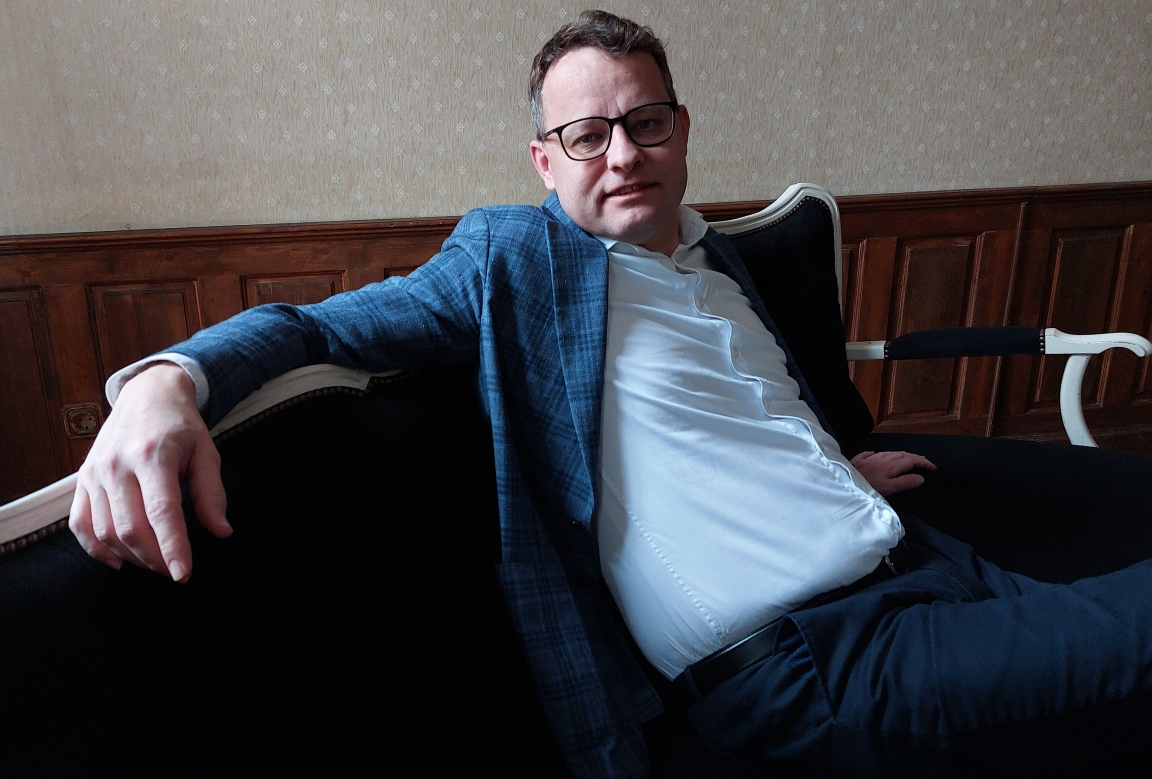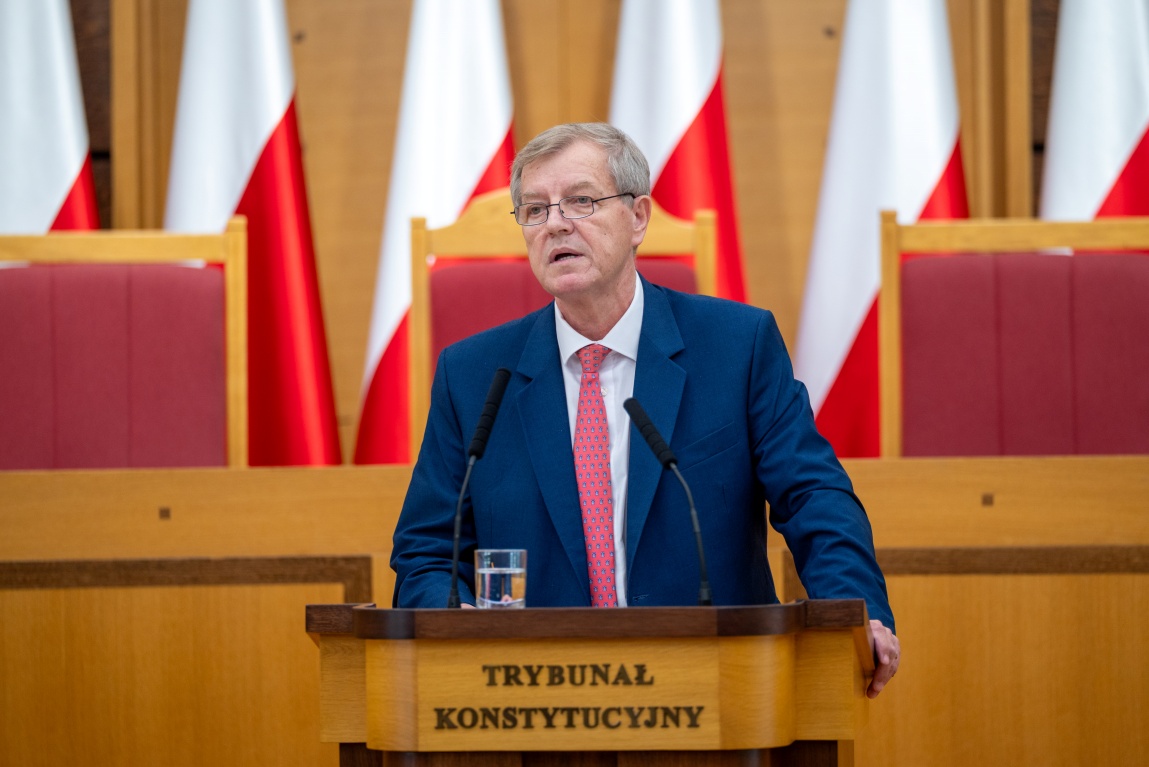
The former deputy minister is the first political refugee from Donald Tusk's Poland, but others might follow.Continue reading

Professor István Stumpf spoke at the “Lawyers for the Rule of Law Congress,” held on May 30 at the Constitutional Tribunal in Warsaw, Poland. The event was co-organized by the Polish Constitutional Tribunal and the Ordo Iuris Institute. The event brought together members of the Polish legal community and international experts to discuss the challenges facing the rule of law and democratic principles both in Poland and globally.
Prof. Stumpf’s lecture was entitled “The Intersection of Sovereignty Protection and Rule of Law Disputes: Lessons for Europe and the World.” We are publishing excerpts from this important speech.
“Democracy depends on two key pillars – national sovereignty and the rule of law. These are not just technical terms. They are the foundation of a free and stable society.
Sovereignty means that the people of a country have the right to make decisions for themselves – through their own elected representatives. The rule of law means that those decisions are made, applied, and enforced fairly and equally – not based on the will of the powerful, but according to clear and established rules. When these two principles work together, democracy functions properly. But when one is used to attack the other –
when the rule of law becomes a political tool, or when sovereignty is used to avoid accountability – the system begins to break down.”
And that is exactly the kind of crisis we are witnessing in many countries of Europe today.
In recent years, the European Union has become a political battleground – not only over issues like economics, migration, or climate policy. The deeper conflict is now about who gets to define democracy – and who gets to enforce that definition. We are often told that the EU protects democracy by defending the rule of law. That sounds noble. But in practice, we are seeing something very different.

István Stumpf in Warsaw. Photo: Ordo Iuris
In the name of the rule of law, certain actors with support from EU institutions are trying to change the rules of political competition. Legal tools are no longer being used to protect pluralism – they are being used to punish governments and voices that challenge their ideological line.
The contradiction is hard to ignore. The same politicians and media figures who strongly criticize others for violating the rule of law often do not follow the same standards when they are in power. They speak of independent courts – but then try to influence judges once they are elected. They talk about freedom of speech – and then take steps to weaken independent media or silence political opponents in their own countries.
Across Europe today, we see a disturbing trend – not only in shifting political alliances, but in the changing standards of what counts as legitimate democracy.
Some thinkers are embracing the idea of militant democracy – the belief that democracy must protect itself by limiting or excluding groups that are considered dangerous or anti-democratic.
Supporters of this approach say it is necessary – that democracy must not tolerate those who wish to destroy it. But there is a serious risk: the definition of what is considered a “threat” is becoming broader and more political. Who decides which opinions are acceptable? Who has the power to shut others out in the name of protecting the system?
When militant democracy is applied without limits, it stops protecting pluralism and starts undermining it.
It turns the state from a neutral referee into an active player. Instead of open debate, we get selective exclusion. In time, this can turn democracy into a closed space – where only certain voices are allowed to be heard, and others are pushed out by legal or procedural means.
This pattern is present in Western Europe as well, in countries like France and Germany, where we now see entire political movements facing the threat of politically motivated legal action. These actions are not isolated incidents. They reflect a deeper transformation in the European democratic model – one where legal procedures are not used to ensure equal political participation, but to control which views are allowed to participate at all.
This is not about defending one ideology over another. It is a warning: when governments start to decide who people are allowed to vote for, and when courts are used to settle political battles, the line between law and state power begins to disappear. This is not just political friction. It is a growing constitutional crisis – one that threatens the balance of institutions, the fairness of the legal system, and the public’s trust in democracy itself.

Photo: Ordo Iuris
What we are seeing in many places today is what some scholars call “rule by law” instead of rule of law. The difference is important. Rule of law means the law is above politics. It is neutral. It applies equally to everyone, regardless of their position or beliefs. Rule by law means the opposite – it means using legal systems to reach political goals. It means using investigations, court cases, and regulations to weaken rivals – while still claiming to act in the name of democracy and justice. This is not only unfair – it is dangerous. It destroys trust. It creates division. And it slowly erodes the legitimacy of democratic institutions, even in countries where democracy once seemed strong and secure.
So, what can we learn from all of this? First, we must understand that national sovereignty is not a threat to democracy – it is one of its basic requirements. Without the ability of a nation to govern itself, democracy becomes an empty promise, managed from the outside by bureaucratic elites. Second, we must protect the rule of law from political misuse. Courts must remain neutral. They are meant to be referees – not players in the game. When they take sides, the whole system breaks down. Third, Europe must stop treating political disagreement as a legal problem. Not every political difference is a crisis. In fact, diversity of opinion is essential to a healthy democracy.
And finally, we must be honest with ourselves. The current approach in the EU is not bringing unity – it is creating more division. It is turning states against one another. It is building mistrust. Every election becomes a battlefield. Every court ruling becomes a weapon. And every institution becomes suspect.
What Europe needs now is not more centralized control, but a return to democratic balance.
A Europe where national sovereignty is respected. Where the rule of law is a real principle, not just a political slogan. Where different political views are allowed to compete – and not criminalized or disqualified by legal tricks. This challenge is not only European. Around the world, democracies are facing the same struggle – between global rules and national self-government, between supra-national procedures and democratic legitimacy. The solution is not to choose one side or the other. It is to rebuild the trust that makes both possible – the trust between people and institutions, between majority and opposition, between national governments and the wider democratic community. Let us choose the path of mutual respect and constitutional humility. Because only then can democracy truly survive.
Professor István Stumpf is a former constitutional judge, special advisor to Prime Minister Viktor Orbán, and former President of the Friends of Hungary Foundation, publishers of Hungary Today.
Featured Image: Ordo Iuris